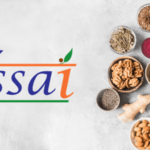Understanding FSSAI: Ensuring Food Safety in India
The Food Safety and Standards Authority of India (FSSAI) is the apex body established under the Food Safety and Standards Act, 2006, with the mandate to ensure food safety and promote public health in India. With increasing concerns about food adulteration, contamination, and safety standards, FSSAI plays a critical role in regulating and supervising food-related operations.
What is FSSAI?
FSSAI is an independent statutory body functioning under the Ministry of Health and Family Welfare, Government of India. Its primary objective is to ensure the availability of safe and nutritious food for all citizens. The authority formulates science-based standards for food articles and monitors food businesses to ensure compliance.
Key Functions of FSSAI
- Formulation of Standards: FSSAI establishes standards for food articles to ensure the production of safe and high-quality food.
- Licensing and Registration: It mandates licensing for food manufacturers, distributors, and retailers to ensure food safety compliance.
- Inspection and Audits: Regular inspections and audits of food businesses help identify and mitigate risks.
- Consumer Awareness: FSSAI runs initiatives to educate consumers about food safety, hygiene, and the importance of reading labels.
- Research and Development: The authority promotes food safety research and shares insights to improve safety standards.
- Enforcement: FSSAI has the power to penalize food businesses that violate food safety laws.
FSSAI Registration and Licensing
FSSAI registration is mandatory for every food business operator (FBO) in India, whether it is a small-scale vendor or a large corporation. The process is divided into three categories:
- Basic Registration: For small businesses with a turnover of less than ₹12 lakh annually.
- State License: For medium-sized businesses with a turnover between ₹12 lakh and ₹20 crore annually.
- Central License: For larger businesses operating across multiple states or with a turnover exceeding ₹20 crore.
Benefits of FSSAI Certification
- Consumer Trust: FSSAI certification boosts customer confidence in the quality and safety of food products.
- Market Expansion: Certification is essential for expanding into domestic and international markets.
- Legal Compliance: It protects businesses from legal penalties and enhances credibility.
- Quality Assurance: Promotes the production of safe and high-quality food.
- Improved Branding: An FSSAI license enhances a brand’s image in the competitive market.
Challenges Faced by FSSAI:
Despite its achievements, FSSAI faces challenges such as:
- Inadequate infrastructure for testing food samples.
- Limited awareness among small-scale food vendors.
- Delays in licensing and enforcement due to bureaucratic processes.
- Non-compliance by certain food businesses, leading to risks for public health.
Initiatives by FSSAI
To address food safety concerns, FSSAI has launched several initiatives:
- Eat Right India Movement: Aimed at promoting healthy eating habits among citizens.
- Food Fortification Program: Encouraging fortification of staple foods like rice, wheat, and salt to tackle malnutrition.
- Safe and Nutritious Food at School: Educating children about food safety and nutrition.
- Clean Street Food Campaign: Enhancing hygiene standards among street food vendors.
Conclusion
FSSAI’s role is pivotal in safeguarding the health of millions of Indians by ensuring the availability of safe and nutritious food. While challenges persist, the authority’s efforts have significantly improved food safety standards in the country. By fostering collaboration with food businesses, consumers, and other stakeholders, FSSAI continues to build a robust food safety ecosystem.
For consumers and businesses alike, adhering to FSSAI standards is not just a regulatory requirement but a step toward a healthier and safer future.










